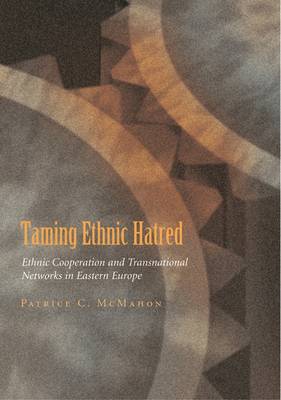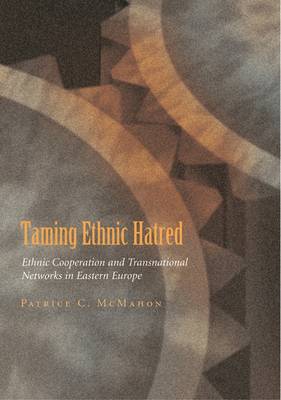
- Retrait gratuit dans votre magasin Club
- 7.000.000 titres dans notre catalogue
- Payer en toute sécurité
- Toujours un magasin près de chez vous
- Retrait gratuit dans votre magasin Club
- 7.000.0000 titres dans notre catalogue
- Payer en toute sécurité
- Toujours un magasin près de chez vous
Taming Ethnic Hatred
Ethnic Cooperation and Transnational Networks in Eastern Europe
Patrice C McMahonDescription
With its unique emphasis on ethnic cooperation rather than discord, this work provides insights into how the international community can help to restrain ethnic conflict in the Twenty First century. By examining the construction of ethnic peace in post-Soviet Eastern Europe, Patrice McMahon accurately describes how the international community worked to quell growing tensions in the East. Key was a network of public and private organizations whose goal it was to work in overlapping ways to manage inter-ethnic relations, which in turn kept ethnically charged clashes far below levels forecast. Inspired by the Conference on Security and Cooperation in Europe (CSCE), this network included Western governments, intergovernmental organizations, as well as non-governmental organizations. Although each actor had its own reason for involvement in this network, she highlights the shared principles and overlapping strategies actors used and how their interaction translated into a modern form of decentralized governance.
This book addresses these issues by considering ethnic relations in Romania and Latvia. In so doing it brings to the fore important stories too long ignored by the West and academic research. Writing in a direct, readable fashion the author connects her subject to a larger review of changes in global governance.Spécifications
Parties prenantes
- Auteur(s) :
- Editeur:
Contenu
- Nombre de pages :
- 316
- Langue:
- Anglais
- Collection :
Caractéristiques
- EAN:
- 9780815631378
- Date de parution :
- 05-04-07
- Format:
- Livre relié
- Format numérique:
- Genaaid
- Dimensions :
- 186 mm x 261 mm
- Poids :
- 762 g

Les avis
Nous publions uniquement les avis qui respectent les conditions requises. Consultez nos conditions pour les avis.






